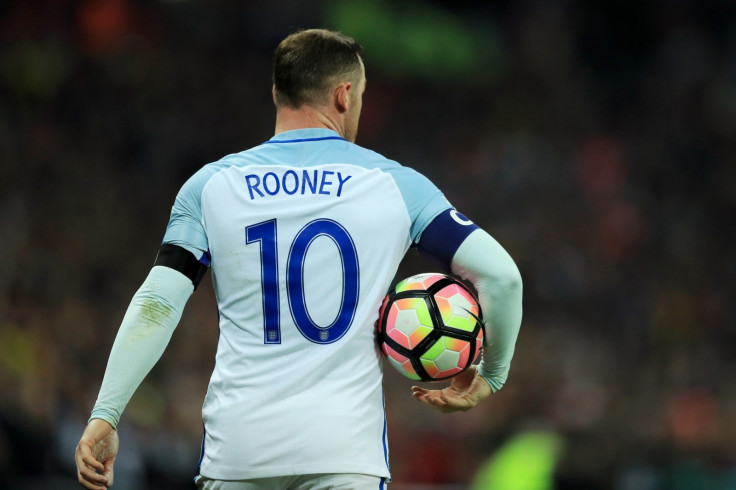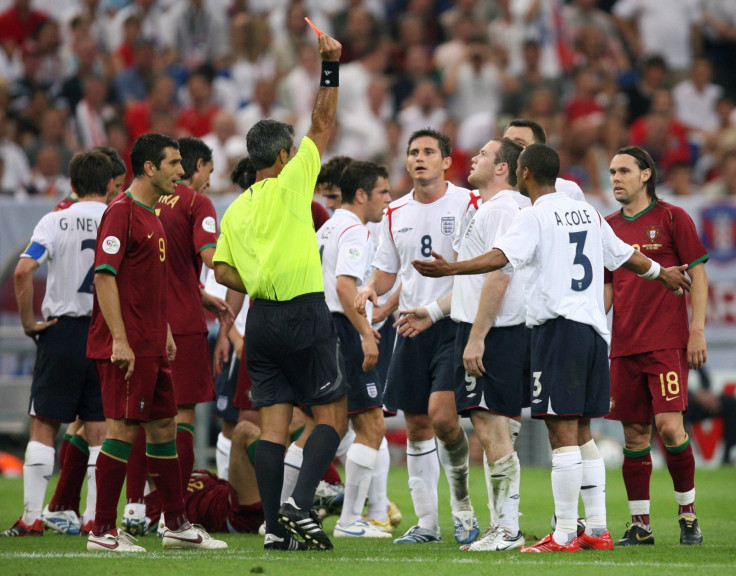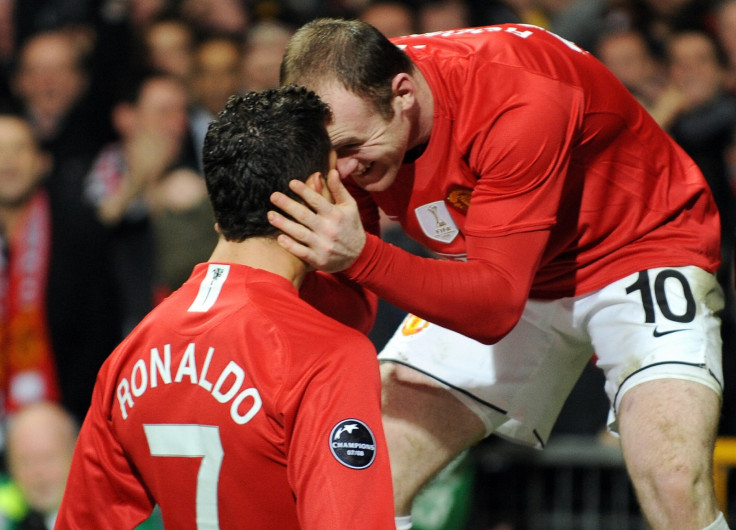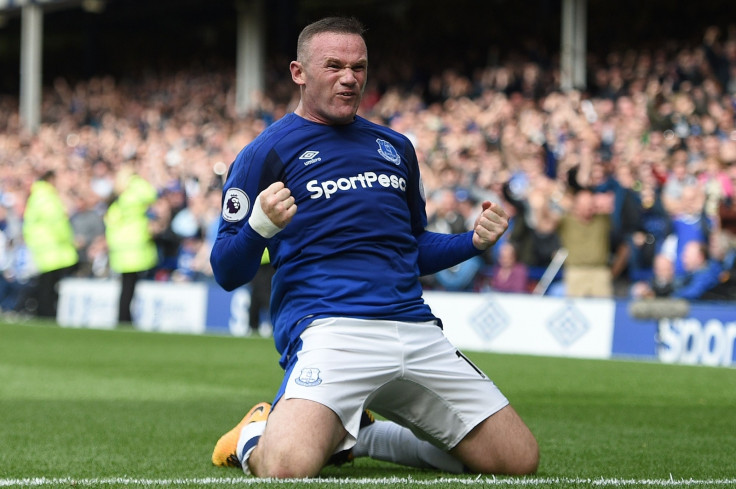Wayne Rooney: England's record goalscorer retires with promise unfulfilled
KEY POINTS
- Rooney announces international retirement to debates rather than eulogies.
- The 31-year-old failed to win a major trophy with his country despite the raft of club honours
It is almost two years since Wayne Rooney joined and then overtook Bobby Charlton as the greatest goalscorer in the history of the England men's football team. The record-equalling 49th goal came against San Marino in a European Championship qualifier and was followed three days later by the record-breaker against Switzerland.
Charlton's 49 goals for England had been a mark that had proved beyond all of this country's most prolific and beloved sharpshooters: Gary Lineker (48), Jimmy Greaves (44), Michael Owen (40), Alan Shearer, Tom Finney and Nat Lofthouse (30 apiece).
But it was Rooney who finally broke Charlton's record, just as earlier this year it was the Scouse striker who overtook the Busby Babe as Manchester United's greatest ever goalscorer (Rooney 253, Charlton 249).
Yet the legacies of Rooney and Charlton are very different. Charlton played for United for virtually his entire career, he was one of the survivors of the 1958 Munich Air Crash and one of Sir Matt Busby's team who rose from those ashes to win the European Cup in 1968.
And, of course, he was a linchpin of England's World Cup win in 1966.
Rooney played 559 times for United but began his career with his hometown club, Everton, and returned to them this summer. As a Red, Rooney won plenty of trophies, including a European Cup, but, despite his years of excellence, he would not make all United fans' list of true club greats. And on the international field, despite his many goals, his career has been marked by too many disappointments.

Thus, his departure, without warning or fanfare, from the England team, will be debated rather than eulogised.
Rooney was a key component of the England football team that was prematurely labelled the 'Golden Generation' and whose every failure brought even greater disappointment. Players who sparkled at club level, stuttered when it came to playing for their country. When it mattered most, Rooney's failings, as a player and as a person, were at their most glaring.
At the 2006 World Cup in Germany, Rooney was sent off as England lost in the quarter finals to Portugal. In the 2010 World Cup in South Africa, Rooney turned on the supporters after they booed a dreary anddisappointing goalless draw with Algeria, before England again crashed out of the tournament early. In 2014 England failed to even reach the knock out stages of the tournament.
Rooney, perhaps sometimes unfairly, became a symbol of those failures. After Euro 2012 he was even scapegoated by his own manager when England coach Fabio Capello claimed Rooney "only plays well in Manchester".

Other players consistently failed to perform on the biggest stages, but it was often Rooney who bore the brunt of the criticism. Perhaps some of this was because the beginning of his career promised untold glories.
Rooney burst into the collective consciousness when, as a 16-year-old playing for the club he had supported as a child, he scored a spectacular goal which gave Everton victory over Arsenal, ending the London club's 30-match unbeaten run. Commentator Clive Tyldesley marked the moment: "Remember the name: Wayne Rooney." Shortly afterwards, to the disappointment of Everton supporters, he joined United. As a professional it would be hard to argue with his career choice. To fans it is never that simple.
Shortly after that Rooney became England's youngest ever player, making his debut at 17 years and 111 days, and a few months later he was his nation's youngest ever goal scorer. Within a year he had become the youngest ever goalscorer at the 2004 European Championships (a distinction he held for just four days) and scored four goals in four games before England were knocked out in a quarter final in which he had to be withdrawn early due to injury.

Within the space of a year Rooney had become the standard bearer for the hopes of Everton, United and England. Everton got their disappointment in early, while the hopes of others only slowly unravelled over time.
To call Rooney a United failure would be unfair, but he did not become the talisman that was hoped for. Other players around him became the biggest stars while Rooney became a consummate team player. His very willingness to do whichever job Sir Alex Ferguson required of him probably stunted his ability to become the player he might have been. It was instead his contemporary Cristiano Ronaldo who became the fulcrum, the figurehead, and then the global star.
This summer Rooney returned to a hero's welcome at Everton. Much will be expected of him to bring the glories that were so fleetingly promised at Goodison Park under David Moyes. Matching this expectation is partially behind his retirement from international football at the age of 31. For this is surely too young an age for a top player to retire, particularly when there is a World Cup finals in Russia next year.

The disconnect between club and country is another part of his chequered legacy. Rooney always looked more comfortable playing week-in, week-out in the Premier League than on the international stage. Indeed, his retirement statement flags up his desire to make his club his priority: "Now I want to focus all my energies on helping them [Everton] be successful."
Rooney's statement, however, concludes: "I will always remain a passionate England fan. One of my very few regrets is not to have been part of a successful England tournament side."
It is a regret shared by supporters and the fact that he will not try to end 52-years of hurt next summer will be another of the question marks that remain alongside the record of a player who has achieved and clearly cared so much.
© Copyright IBTimes 2024. All rights reserved.






